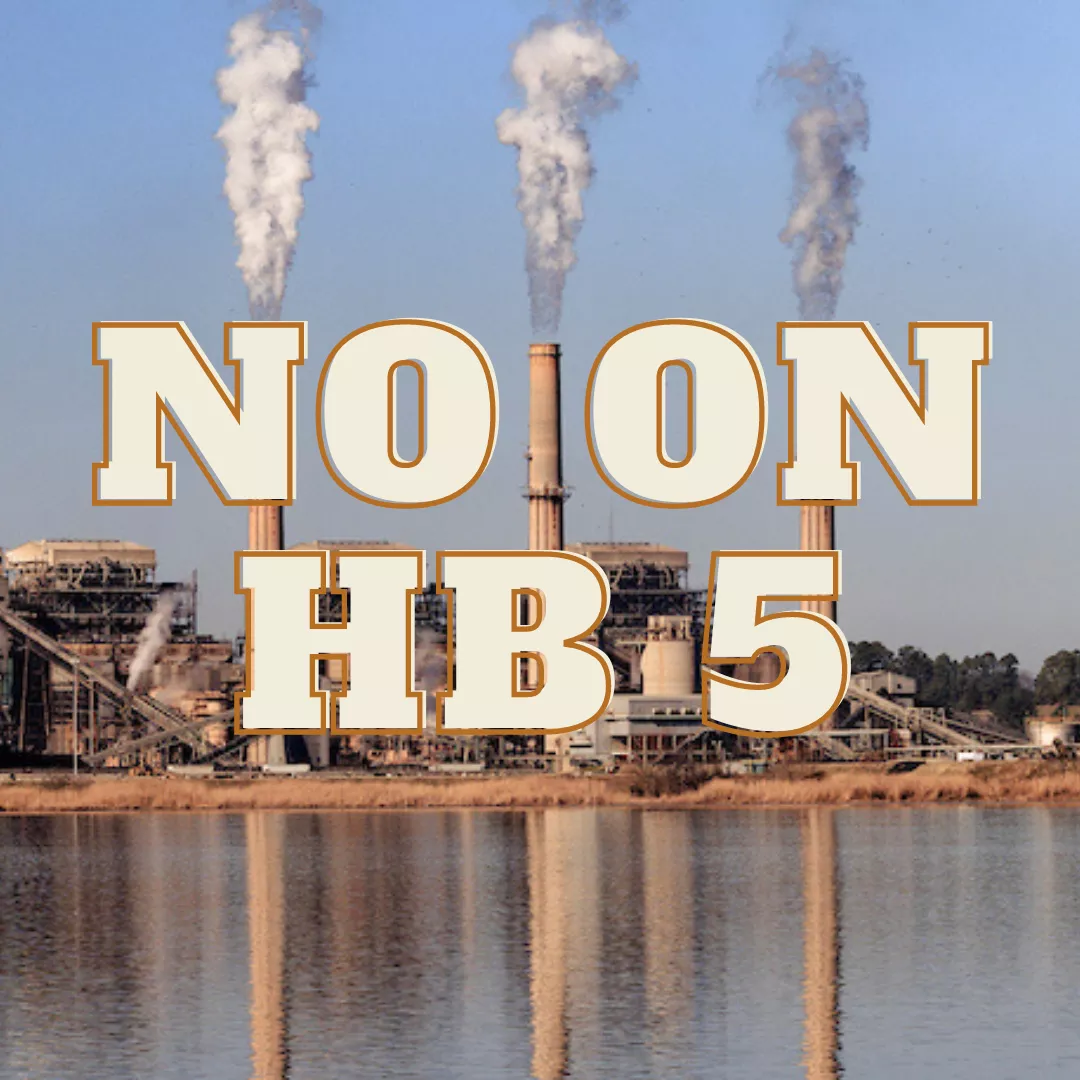
In recent weeks, there has been a concerted effort by big polluting industries to persuade state legislators, particularly Democrats, to sign on as co-author to House Bill 5 (HB 5) or to otherwise vote in favor of it when it reaches the floor. Whether HB 5 is amended or not on the floor, Sierra Club is against it because it is an unneeded corporate subsidy that pits communities against each other.
HB 5 is an attempt to resuscitate the Chapter 313 program, which has given billions of dollars to polluting industries through school property tax abatements. Solar and wind projects were included too, but the majority of the dollars for energy projects have gone to polluting industries (According to Every Texan, wind and solar projects account for two-thirds of all Chapter 313 projects, although only one-quarter of the cost in forgone school property tax revenue. The rest go to oil and gas, plastics, chemical manufacturing, cement, and semiconductor companies, for example).
The bill was swapped out for a new version (referred to as a “committee substitute”), and now includes energy storage projects as eligible for the subsidy. It still excludes solar and wind projects, however.
Why would we oppose this bill even if solar and wind projects were put back in?
- School finance is impacted. Even though an individual school district offering the tax break may benefit with a “make whole” payment and a donation from the individual enterprise, the state as a whole suffers as funding that would have supported all school districts is instead funneled to an individual school district. This is not equitable to the state and pits individual school districts – rural and suburban and urban - tax rich and tax poor – against one another.
- The public is taken out of the decision. Under the last iteration of Chapter 313, information was difficult to find, notice was imperfect and by the time the public had a chance to voice their position, the decision was already “pre-cooked.” If Texas were to continue 313 agreements, then much better public participation and notice rules must be enacted, as well as more robust investigation and accountability.
- Jobs ain’t there. The promised investment and jobs frequently has not materialized as promised in the initial applications, meaning the industry receives favorable tax treatment, but the community doesn’t receive the promised benefits. In addition, to attract these industries, local communities must frequently invest in local water, electric, and transportation infrastructure that creates expenses for the local communities.
- Environmental Injustice. Most importantly, many of these projects require significant water resources, and produce pollution and waste. Even as a corporation is offered favorable tax treatment, and at times a beneficial payment to the school district, local communities (often communities on the frontline of air and water pollution) are burdened with even more pollution.
Rather than these kinds of corporate tax breaks to wealthy companies, we think it makes more sense for Texas to invest in its future, and attract more sustainable industries. Invest in our schools, community colleges, and universities to attract leading clean energy industries.
Utilize new federal funding from the IIJA (Bipartisan Infrastructure Law) to make our electric grid more resilient through transmission upgrades, create green hydrogen hubs, create multi-modal transportation – including a vast EV-charging infrastructure, and be a leader on low-carbon industry development. Continue to fund and develop our water infrastructure - again partially using funds from the IIJA – through the Texas Water Development Board. Supplemental funding from the state should also be used to invest in flood infrastructure funding and community resiliency.
Finally, prioritize worker training programs. We believe the state should use either state funds or take advantage of unique funding under the IIJA and the Inflation Reduction Act of 2022 to create unique programs that work for workers, especially those transitioning from employment in the oil and gas industry, coal industry, and heavy manufacturing to new types of industry. Investing in new industries and particularly workers would be beneficial to all Texans, and the IRA and IIJA also offer monies for worker transition programs.
To dive deeper into the problems with HB 5, read Every Texan's analysis here.